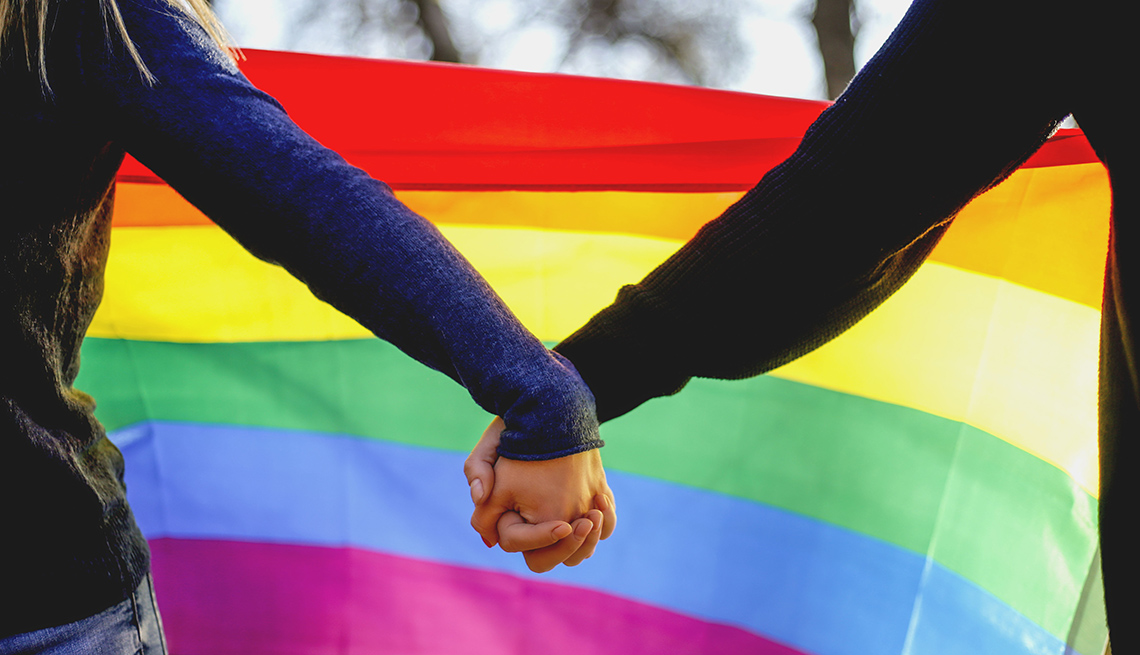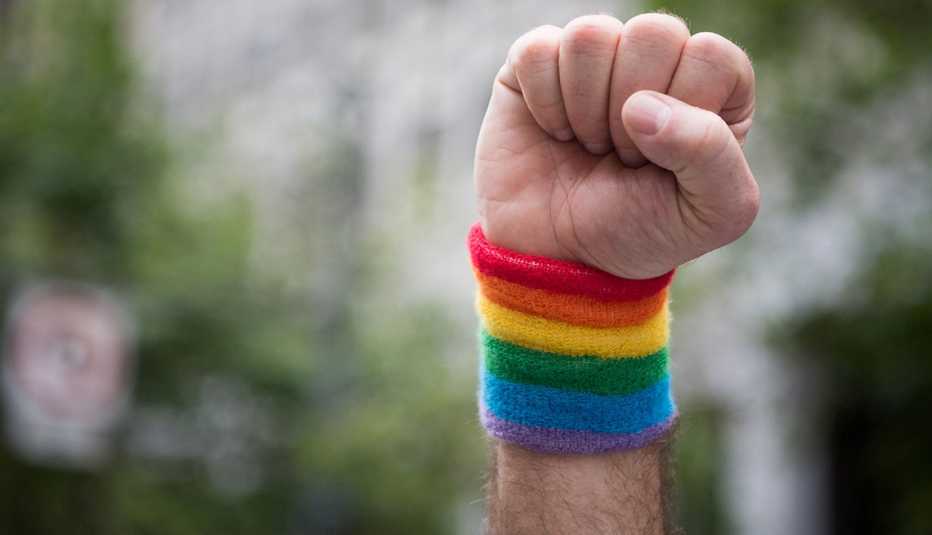AARP Hearing Center
Since 1988, National Coming Out Day has been observed on Oct. 11 as an occasion for lesbian, gay, bisexual and transgender people to celebrate their identities or discuss them with family and friends for the first time.
But coming out isn't limited to a certain time of year, or to teenagers and young adults. An estimated 3 million LGBT adults in the United States are age 50 and older, and for those in midlife and beyond, the process of coming out to loved ones — including spouses and children — can pose unique challenges, even as it brings tremendous rewards.
"Most people feel enormous sadness about disrupting the lives of people closest to them,” says Joanne Fleisher, a Philadelphia-based therapist who specializes in helping women who have been married to men through the coming out process. “Fear is also huge piece ... [people] feel caught between two worlds, like they don't fit into the straight world anymore but they don't fit into the gay world, either.”
Fleisher, now 74, came out herself in her 30s. A mother of two, she was married to a man for many years before realizing she was attracted to women. When she was growing up, she says, gay male sexuality was only discussed in a negative light, and lesbian identity was not discussed at all.
"In my experience, many women don't really clarify their sexuality or feel comfortable looking at their sexuality until much later than we often expect,” she says. In her practice, she says women often fall into two categories: those who have sensed, but suppressed or ignored, their identity all along, and those whose awareness, like her own, comes well into adulthood.
Those grappling with their gender identity may also feel that something is different but aren't able to comfortably explore or articulate their feelings until later in life.
"My whole life I was hiding the issue of gender identity,” says author and speaker Grace Anne Stevens, 72, of Lexington, Massachusetts. “I knew that I had an issue — but not what it was or how to deal with it — since I was 8 years old."
Stevens eventually came out as a transgender woman at age 64. She successfully transitioned in two workplaces and came out to her three grown children, all of whom are accepting of her identity, she says, as are her grandkids, who call her Grace.
"My biggest fear was, if I chose to transition, would I lose my kids?” she says of the years in which she struggled with her identity before transitioning. “I consider myself blessed that I haven't lost anyone in my life.” — Grace Anne Stevens





































































